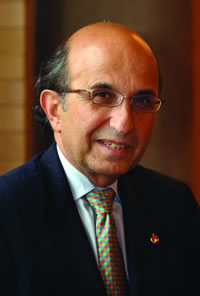In a city as big and bustling as New York, the ease with which people can get around town quickly and comfortably is a key factor in our quality of life -- and our economic competitiveness. That's why, from the very beginning of our administration, we've looked for innovative ways to improve New York's transportation network while also reducing our carbon footprint. The investments we've made in transportation are also a big part of why New York City is now creating jobs at twice the rate of the nation.
For example, the Number 7 Subway extension, which the city is funding, is a great investment that will continue to pay big dividends in the form of new jobs, housing, and open space, not to mention the revenues generated from the development of the Hudson Yards area. In the not-too-distant future, straphangers will be able to ride the Number 7 all the way to the 34th Street Station on the Far West Side. And now, we plan to talk to officials on both sides of the Hudson about whether we might be able to extend the Number 7 line even farther west -- to New Jersey. It's an innovative concept, and one that we're very excited to explore.
We're also partnering with the Zipcar Company to test out a car share program for city agencies that would help us reduce the size of our passenger fleet, take cars off the road, and free up street parking. And, for the first time ever, we're working with the auto industry to design a safer, greener, and more comfortable cab especially for New York City.
We've received a number of proposals, and last week we narrowed the field down to three top contenders. Now we're asking New Yorkers to help us decide which, if any, of these top designs could meet the safety, comfort, and durability requirements of the 24/7 taxi industry. Tell us what you think are the most important features for the "Taxi of Tomorrow" by visiting the "Taxi of Tomorrow webportal, or through the city's Web site, www.nyc.gov.
For example, would you rather have more storage space for luggage, or more room for passengers? How about a sunroof that allows you to gaze up at the midtown skyscrapers, or an electrical outlet to charge your cell phone? Those who take a moment to answer the brief survey posted on the "Taxi of Tomorrow" Web page will have a chance to win a whole year of free cab rides -- worth up to $5,000. That's a pretty fantastic prize, so don't delay in filling out the survey. Again, you can find the survey and view the proposed designs for the "Taxi of Tomorrow" here, or through the city's Web site, www.nyc.gov.







